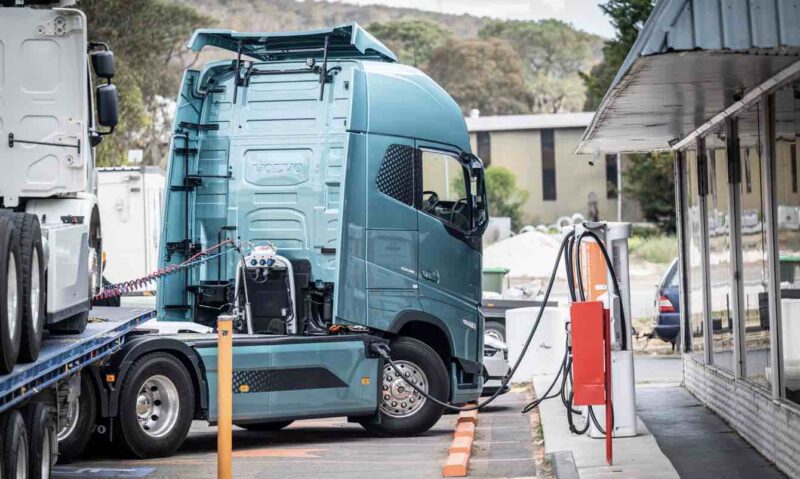Heavy duty electric trucks had the potential to slash transport pollution in Australia, an inquiry has heard, but regulatory roadblocks and high prices were delaying their roll-out.
Automakers and industry groups issued the warning at the Transition to Electric Vehicles inquiry in Brisbane on Thursday, calling for legal changes to support low-emission transport and financial support.
The inquiry, in its sixth public hearing, heard electric vehicles were expected to reach a price “tipping point” for consumers soon and future rebate schemes could target second-hand rather than new EV purchases.
The predictions came just days after the Queensland government ended its rebate on new electric car purchases – one of the few remaining subsidies in Australia – and after sales figures showed new electric car purchases had slowed during August.
Heavy Vehicle Industry Association chief advocacy officer Adele Lausberg told the parliamentary inquiry many of its members were eager to invest in large, battery-powered trucks, which could benefit businesses and the environment.
“If the goal is to reduce emissions, electric trucks certainly have a place and quite a large role to play,” she said.
“Some of the other elements of the industry are going to be much harder to make electric (but) we do know that electric trucks have a good case and they are part of the solution.”
But she said freight businesses still faced significant barriers to adopting the technology because electric trucks cost two to three times as much as their diesel equivalents and firms had to invest in charging equipment.
Association managing director Mark Gjerek said heavy duty electric trucks would ultimately be cheaper to maintain and run, but many businesses would adopt the technology sooner with financial assistance.
If they did, he said, the smoother, quieter and easier-to-drive trucks could help the industry recruit more workers.
“What we see is drivers prefer electric heavy vehicles,” Mr Gjerek said.
“Electric vehicles coming into the truck industry could attract drivers.”
Volvo Australia e-mobility solutions manager Timothy Camilleri said local and state governments could accelerate their adoption by creating a national set of rules around their use on public roads.
National and state-based legal changes and trials to allow the heavier trucks on public roads had been helpful, he said, but more roads needed to be opened to electric trucks and one set of rules established.
“We (want) national harmonisation across the different jurisdictions… not just between states and territories but into local councils as well,” he said.
“While we acknowledge the concerns about pavement and structure are warranted, we also stress the impact is not as great as some may say.”
The inquiry also heard from Queensland government representatives, including Energy and Climate Department deputy director-general David Shankey who predicted electric cars would soon reach their “tipping point” and command similar prices to petrol vehicles.
Transport policy planning and investment deputy director-general Andrew Mahon said falling prices had changed the electric car market markedly in two years.
While Queensland’s EV rebate finished on Monday, he said a future scheme could target a different part of the industry.
The parliamentary inquiry is due to hear from other industry stakeholders in Canberra and Adelaide during September and October.
AAP

